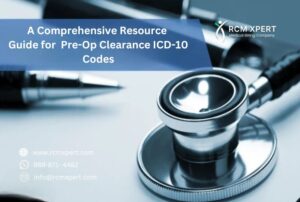In the ever-evolving field of healthcare, where regulations tighten and the need for efficiency heightens. Exploring rehab medical billing services becomes not just beneficial, but essential. For rehabilitation centers, physical therapists, and occupational therapists, the difference between surviving and thriving lies in the details of billing practices.
This comprehensive guide illuminates the path to maximizing revenue and streamlining operations, ensuring your focus remains on patient care.
The Challenges of Rehab Billing and Collections
Rehab medical billing services encompass navigating a maze of complex coding and compliance, tackling high denial rates, and dealing with time-consuming claims processing. These hurdles require meticulous attention and expertise to ensure financial stability for rehabilitation centers and practitioners.
Complex Coding and Compliance Requirements
Complex coding and compliance requirements in rehab medical billing services involve navigating a detailed and highly regulated framework of coding systems and healthcare laws to document and bill for medical services provided accurately. Here’s a breakdown of what these entail:
1. Complex Coding:
CPT® (Current Procedural Terminology): This coding system is used to describe medical, surgical, and diagnostic services. Providers need to use the correct codes to describe their rehab services to ensure accurate billing and reimbursement.
ICD-10 (International Classification of Diseases, Tenth Revision): These codes are used to document patients’ diagnoses. Accurate ICD-10 coding is crucial for establishing the medical necessity of treatments, which directly impacts reimbursement.
HCPCS (Healthcare Common Procedure Coding System): HCPCS codes cover services and procedures not included in CPT® codes, such as durable medical equipment and certain drugs, supplies, and services not covered elsewhere.
2. Compliance Requirements:
HIPAA (Health Insurance Portability and Accountability Act): Compliance with HIPAA is mandatory for protecting patient privacy and securing health information. It sets the standard for sensitive patient data protection.
HITECH Act: Enhances HIPAA rules, particularly in the adoption and meaningful use of health information technology; emphasizes the privacy and security of electronic health information.
Fraud and Abuse Laws: These include the False Claims Act, Anti-Kickback Statute, and Stark Law, all of which aim to prevent fraud, abuse, and conflicts of interest in the healthcare sector.
Medicare and Medicaid Compliance: Providers must adhere to specific billing guidelines established by Medicare and Medicaid, including proper documentation and submission of claims according to the program’s rules.
High Denial Rates
High denial rates in the context of rehab medical billing services refer to a situation where a significant proportion of the claims submitted to insurance companies by healthcare providers, such as rehabilitation centers, physical therapists, and occupational therapists, are rejected and not paid. Here are some key aspects related to high denial rates:
Causes of High Denial Rates
Incorrect or Incomplete Patient Information: Errors in patient data, such as misspelled names, wrong insurance ID numbers, or inaccurate demographic information, can lead to claim rejections.
Coding Errors: This includes the use of incorrect, outdated, or nonspecific codes, as well as missing modifiers. Coding must accurately reflect the services provided and comply with current standards.
Lack of Authorization or Pre-Certification: Some treatments or services require prior authorization from the insurance company. Failure to obtain this can result in denied claims.
Service Not Covered: Claims may be denied if the insurance policy does not cover the particular service or procedure, or if the service is deemed not medically necessary.
Duplicate Claims: Submitting the same claim more than once can lead to one of the submissions being denied as a duplicate.
Time-consuming Claims Processing
The process of filing and following up on claims in rehab medical billing is notoriously time-consuming. Each claim requires precise attention to detail to ensure that all necessary documentation is included and that it meets the payer’s specifications. Enhancing advanced billing software can streamline this process by automating data entry and claim tracking.
Solutions for Efficient Rehab Billing
Exploring the complexities of rehab medical billing requires a strategic approach to ensure financial health and compliance. This section explores effective solutions to enhance billing operations.
Consider Outsourcing Medical Billing
Outsourcing rehab medical billing services can significantly alleviate the administrative burden on healthcare providers. By partnering with experts who specialize in medical billing for rehabs, facilities can ensure accuracy, compliance, and timely submission of claims. This strategy not only reduces the risk of billing errors but also allows therapists to focus more on patient care rather than administrative tasks.
Develop a Comprehensive Denial Management Process
High denial rates are a critical challenge in rehab medical billing. Developing a comprehensive denial management process is crucial for identifying common reasons for denials and implementing corrective measures. Regularly analyzing denial data helps in understanding the trends and root causes, enabling practices to address these issues proactively. Effective denial management includes training staff on coding updates and payer policies, and promptly reworking and resubmitting denied claims with the necessary corrections.
Implement Effective Follow-up Procedures for Outstanding Accounts Receivable
Timely follow-up on outstanding accounts receivable is essential for maintaining cash flow and reducing the aging of accounts. Implementing effective follow-up procedures involves regularly monitoring the status of each claim and engaging with insurance companies to resolve any discrepancies or delays. Establishing a systematic approach to follow-ups, including setting reminders for re-contact and utilizing software tools for tracking, ensures that no claim is overlooked.
The Benefits of Proper Rehab Billing Practices
Effective rehab medical billing practices are crucial for the sustainability and growth of healthcare providers in the rehabilitation sector. This section outlines the key benefits of implementing efficient billing systems.
Increased Revenue and Profitability
Optimizing rehab medical billing services can lead to significant increases in revenue and profitability for rehabilitation centers. By ensuring accurate and compliant billing processes, healthcare providers can maximize claim reimbursements and minimize denials. Proper coding and timely submission of claims are paramount to capturing all entitled revenues, ultimately enhancing the financial health of the practice.
Improved Cash Flow
Effective medical billing for rehabs directly impacts the cash flow of practice by reducing the time between service delivery and payment receipt. Streamlined billing processes and regular follow-ups on outstanding claims ensure that payments are received promptly, thereby maintaining a steady cash flow. This is vital for rehab centers to manage their operational costs effectively and invest in quality patient care.
Reduced Administrative Burden
Implementing efficient rehab medical billing systems significantly reduces the administrative burden on therapists and staff. By automating routine tasks and utilizing billing software, facilities can cut down on manual data entry, reduce errors, and free up staff to focus on more critical aspects of patient care and practice management. Outsourcing billing tasks to specialized providers can further alleviate the workload, allowing healthcare professionals to concentrate on their primary responsibility of patient rehabilitation.
Enhanced Patient Satisfaction
Accurate and transparent billing practices are essential for maintaining and enhancing patient satisfaction. When rehab medical billing is handled efficiently, patients are less likely to encounter billing errors or discrepancies, which can often lead to confusion and dissatisfaction. Clear communication about the billing process and charges fosters trust between the patient and the provider, enhancing the overall patient experience.
Common Rehab Billing Errors and how to avoid them
Ensuring accuracy in rehab medical billing is crucial for the financial health of rehabilitation centers. This section delves into common billing errors and provides strategies to avoid them.
Incorrect Patient Information
One of the most frequent errors in rehab medical billing involves incorrect or incomplete patient information. Such mistakes can lead to claim rejections or denials, significantly delaying payments. To avoid this, double-check all patient details at the time of entry, emphasizing accuracy in names, date of birth, insurance details, and policy numbers. Implementing a verification process before claim submission can significantly reduce these errors, ensuring smoother billing operations for rehab medical billing services.
Misinterpretation of Coverage
Misunderstanding a patient’s insurance coverage for rehab services often results in billing errors. It’s essential to conduct thorough insurance verifications and pre-authorizations before providing services. This proactive approach allows for a clear understanding of the covered services under a patient’s policy, including medical billing for drug rehab and other specialized treatments. Regular training on insurance policies and updates will equip your billing team to better navigate the complexities of rehab medical billing.
Coding Errors
Coding errors are a critical concern in medical billing for rehabs, leading to denied or underpaid claims. Utilizing incorrect codes, outdated codes, or failing to apply the appropriate modifiers can have a significant impact on reimbursement. To circumvent these issues, ensure that your billing staff or outsourced billing service is well-versed in current coding standards, including ICD-10, CPT®, and HCPCS codes relevant to rehabilitation services.
Lack of Documentation
Inadequate documentation that fails to support the necessity of treatments or services provided is a common pitfall in rehab medical billing. Comprehensive and detailed documentation is essential for justifying the treatments billed to insurance companies. Encourage therapists and healthcare providers to maintain detailed notes for each session, including the treatment’s necessity and progress notes. Investing in electronic health record (EHR) systems can enhance documentation practices, making it easier to manage and retrieve patient records when needed.
How to Choose the Right Medical Billing Partner
Selecting the appropriate medical billing partner is essential for rehabilitation centers, physical therapists, and occupational therapists. This choice directly impacts the financial well-being and operational efficiency of a practice.
Expertise in Rehab Billing
When choosing a partner for rehab medical billing services, it’s crucial to find a company with specific expertise in rehab billing. This specialization ensures they are familiar with the unique challenges and nuances of billing for rehabilitation services, including medical billing for drug rehab. A partner with a deep understanding of rehab billing codes, regulations, and payer requirements can navigate the complexities of the billing process more effectively, reducing errors and maximizing reimbursements.
Technology and Integration
The right medical billing partner should offer advanced billing software and technology solutions that seamlessly integrate with your existing systems. This integration facilitates efficient data exchange, accurate billing, and comprehensive reporting. Look for partners who provide cloud-based solutions for ease of access and who ensure compliance with healthcare regulations, such as HIPAA. The ability to offer detailed analytics and insights into your billing process can help identify areas for improvement and growth.
Transparent Communication and Reporting
Transparency in communication and reporting is essential for a successful partnership. Your medical billing partner should provide regular, detailed reports on your billing activities, including claim submissions, denials, and accounts receivable. This transparency allows for better financial planning and decision-making. Additionally, open lines of communication ensure that any issues or questions can be addressed promptly, fostering a trusting and collaborative relationship.
Reputation and Reliability
The reputation and reliability of a rehab medical billing company are indicators of its performance and service quality. Research potential partners, read reviews, and seek references from other healthcare providers. A reputable billing partner should have a proven track record of reducing billing errors, improving collection rates, and enhancing the overall financial performance of their clients.
Conclusion
Exploring the complicated world of rehab medical billing demands precision, up-to-date knowledge, and a proactive approach to overcome challenges like complex coding, compliance requirements, and high denial rates. By embracing best practices, such as accurate coding, thorough documentation, and strategic billing partner selection, rehabilitation centers, and therapists can enhance revenue, streamline operations, and maintain compliance. Ultimately, the goal is to ensure financial stability and allow healthcare providers to focus on delivering exceptional patient care, driving the success of rehab services in today’s competitive healthcare landscape.





